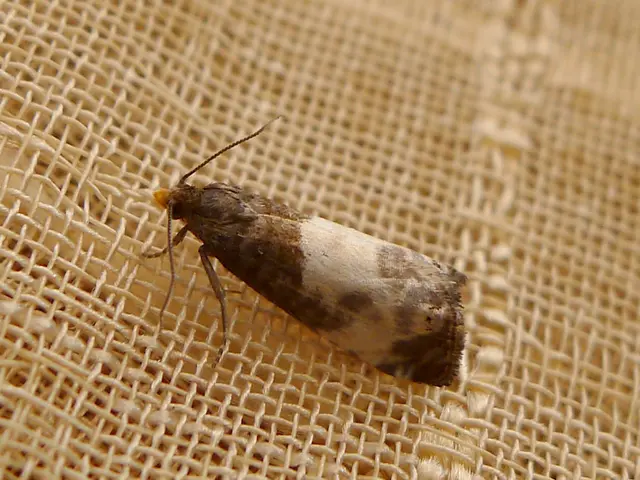Global Plastic Problem: An Ongoing Catastrophe Threatening Earth's Ecosystems
Plastic Pollution Pushes the Earth Over the Edge
The world is drowning in plastic, and it's causing some serious damage. Here's the lowdown on this waste crisis and why we need to take action, stat.
Key Points:
- Production vs Recycling: In 2022, over 506 million tonnes of plastic were produced globally, yet only 9% was recycled. Yikes!
- Globetrotting Garbage: Microplastics have found their way into some of the remotest places on Earth, from the peaks of Mount Everest to the depths of the Mariana Trench.
- Chemical Attack: Phantom chemicals, including endocrine disruptors and "forever chemicals," lurk in plastics, wreaking havoc on ecosystems and human health.
Global Warming, Biodiversity Loss, and More: The Collateral Damage
- Climate Chaos: Most single-use plastics are derived from fossil fuels, releasing greenhouse gases throughout their lifecycle and contributing to climate change.
- Extinction Express: Plastic waste entangles wildlife and leaches harmful chemicals, disrupting ecosystems and causing biodiversity loss.
- Ocean Degradation: Plastic waste contributes to ocean degradation, affecting marine ecosystems and biodiversity.
- Resource Strain: The production of plastic puts a strain on freshwater and land resources.
Let's Get This Ball Rolling: The Great Global Treaty
On 25 November 2024, representatives from around the world will gather in South Korea to talk turkey on a legally binding treaty to tackle plastic pollution. But it's not all sunshine and roses – debates over reducing production and industry influence are making progress difficult.
The treaty is crucial for managing the plastic mess, but fossil fuel and industry lobbyists are making a fuss, with the plastics industry alone worth a whopping $712 billion.
Put a lid on it: It's an Emergency!
- Health Alert: These phantom chemicals are showing up in human bodies, raising red flags about long-term health effects.
- Saving Mother Nature: Without intervention, plastic production and waste will continue driving ecological harm, threatening both people and our precious planet.
A Comprehensive Plan: The Only Way Forward
The upcoming treaty negotiations present a golden opportunity to tackle the plastic crisis head-on. According to Luis Vayas Valdivieso, chair of the UN treaty talks, "We cannot manage the amount of plastic we are producing. Only 10% gets recycled; something must be done."
Sources:
- Stockholm Resilience Centre
- World Bank Plastics Data (2022)
- UN Treaty Discussions, South Korea 2024
- Research by Patricia Villarrubia-Gómez and Bethanie Carney Almroth
Enrichment Data:
Plastic Pollution Treaty: Where Things Stand Now
While the global treaty aimed at reducing plastic pollution is still in the works, it's been a bumpy ride so far. The treaty negotiations kicked off in 2022 with 175 countries involved, and they're set to resume in August 2025 in Geneva, Switzerland[1]. However, the talks have been fraught with division, with past rounds failing to produce a final agreement[1][5].
Key Obstacles to Overcome
1. Diverging Objectives and Policies
- The treaty is bogged down by diverse viewpoints on what objectives and policies should be included. Some countries advocate for strict measures, while others prefer less rigorous voluntary measures[1][5].
2. Global vs. National Approach
- The debate over whether the treaty should enforce uniform global regulations or allow for voluntary national approaches is causing a stir[5].
3. Influence of Stakeholders
- Powerful corporations and businesses wield significant sway over the negotiations, which could influence the treaty's ultimate scope and ambition[1].
4. Political Alignment
- Although progress is slow, there are signs of increasing alignment among countries on critical elements of the treaty. Still, reaching agreement remains challenging[5].
The Road Ahead
The next round of negotiations (INC 5.2) in August 2025 will play a crucial role in shaping the treaty's future. The Business Coalition for a Global Plastics Treaty has voiced support for a strong global approach to tackle plastic pollution[5].
- Science and Sustainability: The phantom chemicals in plastic waste pose a threat to human health and well-being, raising concerns about long-term effects on our health and wellness.
- Environmental Science and Climate Change: The production and use of plastic contribute to climate change, as most single-use plastics are derived from fossil fuels and release greenhouse gases throughout their lifecycle.
- Climate Change, Biodiversity, and the Environment: Plastic waste entangles wildlife, leaches harmful chemicals, and contributes to ocean degradation, leading to biodiversity loss and environmental degradation.
- Climate Change, Resource Strain, and the Global Treaty: The upcoming global treaty aims to tackle plastic pollution, but it faces obstacles, including reducing plastic production, managing industry influence, and ensuring uniform global regulations. Without intervention, plastic production and waste will continue to drive ecological harm, threatening both people and our planet.
References:- Stockholm Resilience Centre- World Bank Plastics Data (2022)- UN Treaty Discussions, South Korea 2024- Research by Patricia Villarrubia-Gómez and Bethanie Carney Almroth
Enrichment Data:- Plastic Pollution Treaty: Where Things Stand Now - The global treaty aimed at reducing plastic pollution is still in the works, with the negotiations set to resume in August 2025 in Geneva, Switzerland. - The treaty negotiations have been fraught with division, due to diverse viewpoints, debates over global versus national approaches, influence from stakeholders, and political alignment. - The Business Coalition for a Global Plastics Treaty has voiced support for a strong global approach to tackle plastic pollution. - Reaching agreement remains challenging, but there are signs of increasing alignment among countries on critical elements of the treaty.








